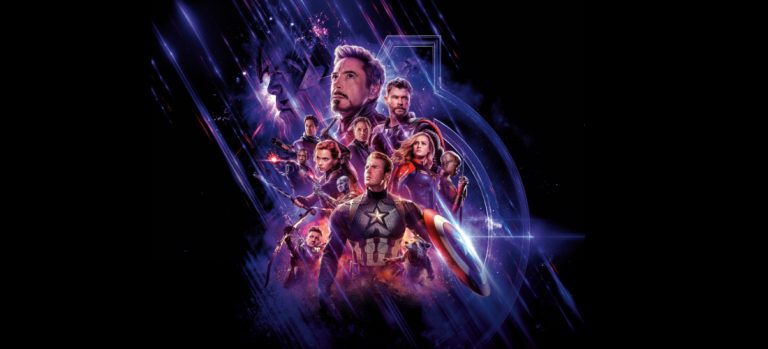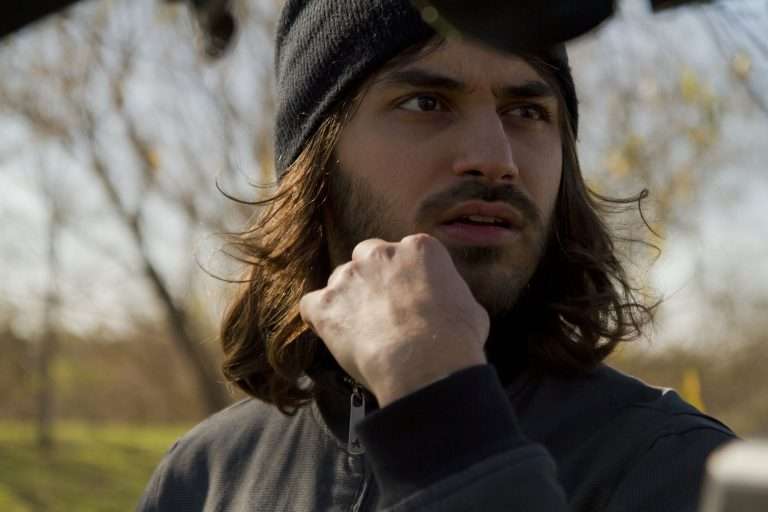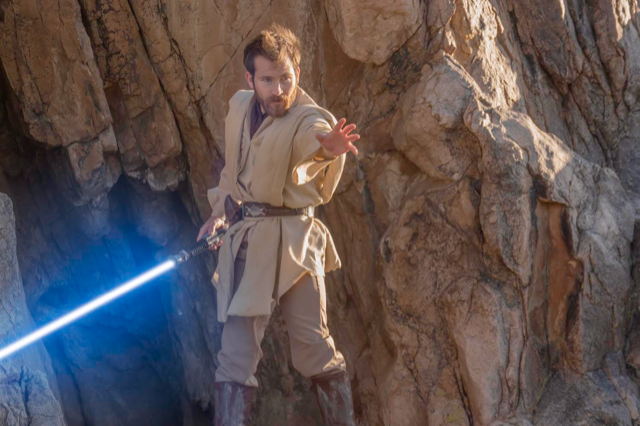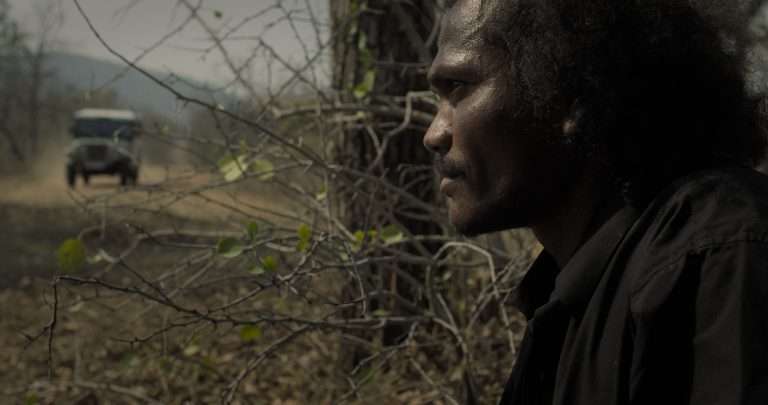An interview with Ronny Sen – The director of Cat Sticks (2019)
Shounak Majumdar: You have often said in your interviews that you cannot leave this city, your characters are also somehow trapped into this city, they cannot leave it too. How do you define your relationship with this city?
Ronny Sen– It’s a love and hate relationship. I grew up in Salt lake in Calcutta and can’t imagine any other place which I can call home. Home is where you want to return, there should be some kind of longing. Also, I guess I have a problem with change so I never had the courage to go and stay anywhere else. I love that Calcutta is slow and peaceful, it works for me. There is amazing food, I have my old set of friends I have been hanging out with since my childhood so it’s all good. Also, I am very middle class and so is Calcutta. The only problem is there is no work, no real market for the kind of work we do. All the galleries are outside the city, either in Bombay or in Delhi. The film market is also very tiny and independent filmmakers don’t have any share in this small piece of cake. As a professional artist, it’s tough if someone wants to survive by doing local work. I have never been approached for any work here, strangely though I have somehow managed to survive. After digital came in it has become even more difficult because good and bad are all mixed ap and is being produced in abundance now. A lot of bad work is seriously being made and pushed in the market by gatekeepers here who have absolutely no clue of what they are doing. It’s disheartening and sad but we are still hopeful that things might change, someday. But, as a city, Calcutta still has a lot to offer. It can still surprise you all of a sudden. When you see hundreds of college students marching and singing on the streets protesting for what they truly believe in, it feels like you live in the right city. You can fall in love with it all over again.
Shounak Majumdar: You are also a photographer, in that discipline you work alone, working in a team for ‘Cat Sticks’ -how difficult and different it was?
Ronny Sen – Primarily it was extremely difficult. I had to trust other people. I had to trust the instincts of other people. Many people with whom I have never worked before. It is very difficult for a photographer to suddenly work with other creative individuals. Firstly, it was difficult to put together a great team. This is where people like Tanaji, Kanti and Theo who were working as producers made a lot of difference. I am extremely grateful to these people. People like Tanaji who taught me to trust people, I am grateful to them. With filmmaking, every day is a compromise, every day is a fight. Every day you win something and you lose something. Each day you think you could have done better. You have to live with these little failures. And slowly you have to let go of many things. In photography, everything depends on you and yourself. You are responsible for everything you produce. It’s not all wrong for the film as well, end of the day it all depends on the director. But initially, it was difficult for me to trust people. I have never worked with people before. But slowly, steadily I realized how to delegate work, how to get your job done and all these things. And we had a very peaceful set. Nobody shouted on the floor and there was no fight. We had gone through a rigorous process for casting or selecting HOD’s for every department. And we did it no hurry. Anyone with doubt could voice their concerns. Everyone was very patient and that gave me the necessary room for the transition from a photographer to a filmmaker. Everyone knew that I was a first-time filmmaker. Some other HOD’s were also first-time filmmakers. In a way, this was my film school. And to be very honest, everyone involved in this film was so good as human beings that I never faced any problem.
Shounak Majumdar: Your film reflects your eye for detailing. But the memories you have picked up and woven into a narrative are not ‘happy memories’ per se. How did you gather yourself to write, what was your process?
Ronny Sen- I was never interested in the euphoria of drugs. Euphoria is short-lived. What actually remains is only the memory of euphoria. Pain is what the addict has to live within the long run. Every day you are into some kind of a fight, with your family, with the authority, with the police, the world at large, you know. There is also a kind of sick normalcy, living with pain on a daily basis. Every day in the life of an addict is actually a film. Their stories were certainly more interesting for me than the normal people we see around us, at least for me. I wanted to talk about the suffering of my friends I grew up with who had faced a lot of violence because of drugs. I wanted to talk about collective suffering through many individual narratives. And hence, the black and white, the rain, one night, multiple characters were all boundaries inside which I wanted to build an atmosphere. These were basic foundations which allowed me to enter a story. I knew all these characters very well so all of them had a distinct vocabulary, mannerism, etc which had to be integrated.
Shounak Majumdar: You have talked at length about your political lineage and your family’s history into politics in one audio interview. You spoke about your grandfather who worked for Netaji in I.N.A. Your stance as a photographer and a person does not shy away from taking a political stand. Most of the people I have talked to, usually don’t answer this. But I will ask you. –In the contemporary polished Bengali cinema, barring a few, the political nature of our films has been completely evaporated. What do you think about that?
Ronny Sen—Ah! Let me speak to you very clearly. I don’t watch a lot of contemporary Bengali films because most of them are terrible! But whenever I get time, I do watch them see what’s going on. I hardly survive 30 mins but I sincerely try. My point of departure is entirely different. I don’t believe that one can make a film without taking a political stand. Everyone has a stand. Even if someone is apolitical that itself is political in a certain way. Every film has got its own politics. You are telling me that we lack political content but I differ with you because I see a lot of rubbish films which properly fuel Bengali bourgeoisie middle-class morality, patriarchy, misogyny, I see politics in these films. Films which are most popular among the masses are films which portray women only as a caregiver and nurturer, whose only job is to take care of a man. I see the mass enjoying it, I see a certain kind of politics there. In the 50s till the 80s such films were severely criticised, but now people enjoy them. And as you have mentioned earlier, the depoliticization is so rapid and Calcutta is so dead that this is possible. No one can deny that there has been a degeneration because society has degenerated. Films are just reflections of the times we live in. But there have been exceptions, Moinak Biswas’s ‘Sthaniya Sambaad’ or Suman Mukhopadhyay’s ‘Herbert’ are great examples of brilliant films that have been made which are also complex political films. In our generation, Aditya Vikram Sengupta, Q, Joyraj Bhattacharjee, are also committed filmmakers who are making political films.
Shounak Majumdar: You have a myriad set of actors in your film, from N.S.D graduates to completely new faces, you have them all. Can you reflect on the casting process? How much time did it take you?
Ronny Sen- It took us a lot of time to cast these people. You might find this interesting that all these characters exist in real life. So, if there is a ‘Deshik’ in the film, there is a ‘Deshik’ in real life as well. If I show you who the real ‘Gere Bappa’ is, you will exactly know what I mean. We had to do a series of workshops with the actors to get the physicality of the junkies. To get the actors to understand the nuances and details of smoking brown sugar took a lot of time and effort. It is easy with a drug like cocaine because you just sniff it. But, smoking brown sugar is borderline fine art. To polish the foil, make a pipe, to lighting the powder from below to actually smoking it, the whole process is very ritualistic. It’s like making a film about a rock band and now you have to train the actors to play the drums, or the guitars or the bass. It’s like that. We had to audition numerous people but it was difficult because I was told actors in Calcutta don’t have the habit of auditioning. So, it took us a long time actually.
Shounak Majumdar: In your photography projects like ‘Khmer Din’ or ‘Jharia’ or also in your film ‘Cat Sticks’ you have really walked out from the traditional compositions and framing structures, something that filmmaker Gurvinder Singh terms as ‘Image ka Bhoot’. How conscious is that decision?
Ronny Sen– Aesthetics or visual vocabulary is something like muscle memory. Language and craft are very biological after a point. This is very hard to explain. Images are actually everywhere, all the time. Images are absolutely everywhere. People can’t see them. The thing is, if you have a craft, language and vocabulary you will see things that are in front you, all the time, in a particular way. If the person can’t see or is trying too hard it shows in their work. You can’t hide it in the work. It needs to be effortless. I still believe in a certain kind of magic and miracle. I want to be surprised by the unknown. The actors through certain accidents create some miracle and magic and one has to be able to embrace them. Something happens right in front of you and it will never happen again, one has to be equipped enough to do justice to that moment by capturing it in the right way.
Shounak Majumdar: The poster of ‘Cat Sticks’ is designed by famous Polish artist Lech Majewski? It’s a unique approach to poster designing, one of the best we have seen. How did you get him on board? Any stories behind it?
Ronny Sen– When I was in a hospital because of Tuberculosis for the second time, the ambassador of Poland who knew my work had come to see me. She was really fond of me and she gifted me lots of Polish books and Polish Jazz DVDs like Tomasz Stanko etc. She later invited me to be an artist in residence in Poland for 3 months where I met her friend Edyta Majewski. She showed me her father Lech Majewski’s huge body of work and that drove me absolutely insane. I was completely awestruck and deeply moved. While working on the film I had this strong desire you can say of trying to have a poster designed by him. I was in love with the Polish school of the poster and what a great opportunity it was. And just as I finished with the script, I sent it to Edyta and requested her to request Lech that if he will be willing to design the poster for our film. So, Lech didn’t see any visuals while making the poster for us. The material for him was the script. I will be grateful to him forever for this.
Shounak Majumdar: How challenging it was to work with composer Oliver Weeks, he comes from a different cultural context altogether?
Ronny Sen— Oliver weeks scored the soundtrack for Cat Sticks. He has an old and long association with Bengal and Calcutta through his collaborations with the iconic singer-songwriter Moushumi Bhowmik and Sukanta Majumdar who was the sound designer of Cat Sticks. I am truly grateful to Moushumi di for introducing us. Oliver is a British composer, guitarist and pianist who studied at Cambridge and the Royal Academy of Music, London. In addition to classical composition and playing in his bands Astrohenge and Khiyo, he has worked with Elton John and Jonny Greenwood of Radiohead. For Cat Sticks, I was looking for a particular kind of sound. When people are high on brown sugar they listen to a certain kind of music. They can’t listen to EDM or techno. They listen to grunge, that’s what they love. Also, in some parts, I needed western classical. Basically, I needed someone who knew rock n roll and western classical both and who understood Bengal or Calcutta for that matter. What he has achieved in Cat Sticks is absolutely mind-blowing.
Shounak Majumdar: So, there was no communication gap ever?
Ronny Sen–He has a keen interest in Bengal’s music and sound. His works with Moushumi di and his keen interest in this part of the world made it very easy for us to smoothly work together. His email id starts with the name of Bengali poet Jibanananda Das, well, the rest you can guess.
Shounak Majumdar: You have mentioned somewhere that ‘Sahaj Pather Goppo’ (by Manas Mukul Pal) as a film that you like from contemporary Bengali cinema. Any other contemporary Bengali or Indian film that you like from recent times?
Ronny Sen– I find a lot of Indian filmmakers very interesting who are working right now. I really love ‘Thithi’ by Raam Reddy. I am really looking forward to his next film. Also, Anamika Haksar’s ‘Ghode ko jalebi khilane le ja riya hoon’ was fantastic.
Shounak Majumdar: Anything that you want to change from the film if you a have chance now, something that may not have worked out the way you wanted?
Ronny Sen- No there is nothing that comes to my mind right now. I think I will have a few things to share after some years.
Shounak Majumdar: Do you have any training in film making? Many of our readers are aspiring filmmakers, what advice would you like to give them, as now they really look up to you and your work?
Ronny Sen—No, I didn’t have any formal training in fine arts or film making. I got myself admitted in many different courses but I left most of them halfway. If you insist me to say something to others, I would tell them that it’s always going to be lonely. Get used to it and be comfortable with it. This whole journey is very lonely. Brace yourself because no matter how successful you are or how beautiful your work is, people will forget it one day or will not care about it. You can’t win this war of survival. No matter how hard you try to preserve and protect your work it’s inevitably going to vanish. So, enjoy the moment and the journey. Don’t be obsessed with arrivals. One has to know why they are doing whatever they are doing. And it’s okay to be naïve. It’s okay to be stupid, it’s okay to be insecure, it’s okay to fail. End of the day just keeps working no matter what. Just don’t stop working, that’s it.
Shounak Majumdar: Now the expectation has really built up. Any future plans that you can or like to share with us?
Ronny Sen- (Laughs heartily) There is no expectation. I am still learning and trying out things. The day when this fun is over and all this becomes suffocating, I will quit and do something else. I will start learning sculpture or something else. I am doing what I am doing because it is the biggest adventure that I will ever know. I am having fun. I don’t care about anything else. I moved away from photography for a while because I was feeling suffocated. It is not that I don’t like the medium anymore, I truly do. I still have to make something for the India Art Fair in Delhi in January. I want to rest and slowly write. Let’s see.





![A Tale of Two Sisters [2003] Review: Every Family Has Its Dark Secrets](https://79468c92.delivery.rocketcdn.me/wp-content/uploads/2018/09/a-tale-of-two-sisters-768x432.jpg)
